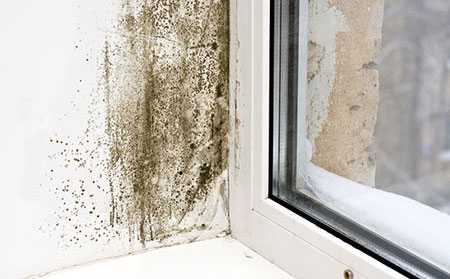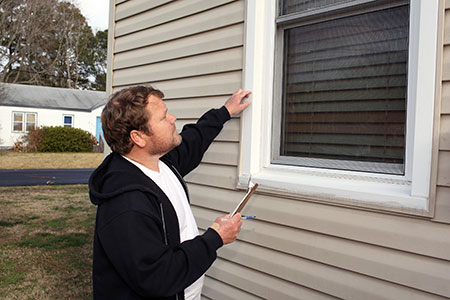Real Estate Council of BC
Other


At common law, a seller, and correspondingly, a seller’s agent, must disclose all known material latent defects. A latent defect is one that is not visible upon ordinary inspection, but which materially affects the property’s use or value. On the other hand, a patent defect is one that is readily visible and/or obvious upon ordinary inspection. A patent defect may also materially affect the property’s use or value.
Section 5-13 of the Council Rules requires disclosure of known material latent defects and that section defines a material latent defect as follows:
Material latent defect means a latent defect that cannot be discerned through a reasonable inspection of the property, including any of the following:
- a defect that renders the real estate
- dangerous or potentially dangerous to the occupants,
- unfit for habitation, or
- unfit for the purpose for which a party is acquiring it, if
- the party has made this purpose known to the licensee, or
- the licensee has otherwise become aware of this purpose;
- a defect that would involve great expense to remedy;
- a circumstance that affects the real estate in respect of which a local government or other local authority has given a notice to the client or the licensee, indicating that the circumstance must or should be remedied;
- a lack of appropriate municipal building and other permits respecting the real estate.
Further, section 5-8 of the Council Rules requires that disclosure to be in writing and separate from any agreement under which real estate services are provided and separate from any agreement giving effect to a trade in real estate. A licensee is not required to disclose a known material latent defect to a buyer if the seller has already disclosed all known material latent defects, in writing, to the buyer. For example, disclosing the material latent defect on the Property Disclosure Statement (PDS) may satisfy the requirements of the Council Rules.
Timing of the disclosure is critical. Written disclosure of all known material latent defects must be provided to the buyer before there is an accepted offer. This applies whether the PDS, or some other document, is to be used to disclose these defects. A licensee acting for the seller must ensure that the written disclosure of the material latent defect was provided to the buyer prior to the acceptance of the offer by the seller. Licensees should include the following clause in the Contract of Purchase and Sale whenever a material latent defect is disclosed.
Disclosure of Material Latent Defect Clause
The buyer acknowledges having received separate written disclosure of a material latent defect relating to (general reference to issue).
Licensees must keep in mind that trading services includes offering real estate for rent or lease. As a result, written disclosure of a material latent defect is required regardless of whether the real estate is offered for sale or for rent or lease.
Section 5-13 of the Council Rules also provides that if the client instructs the licensee not to disclose the material latent defect, the licensee must refuse to provide further trading services to the client in respect of the trade in real estate.
Disclosure of Illegal Activities
If real estate was used for the production of illegal substances, such as growing marijuana or as a methamphetamine laboratory, a material latent defect may exist since, if the property has not been properly restored, it may contain toxic hazards that cannot be discovered on a reasonable examination of the property.
The Council recommends that the following clause be used by buyers to confirm that the property has not been used to grow or manufacture illegal substances:
No Growth or Manufacture of Illegal Substances Clause
The Seller represents and warrants that during the time the Seller has owned the property, the use of the property and the buildings and structures thereon has not been for the growth or manufacture of any illegal substances, and that to the best of the Seller’s knowledge and belief, the use of the property and the buildings and structures thereon has never been for the growth or manufacture of illegal substances. This warranty shall survive and not merge on the completion of this transaction.
If, however, the property has been used to grow or manufacture illegal substances, in addition to making the disclosure in writing to the buyer in a manner separate from the Contract of Purchase and Sale, the Council recommends that the following clause be used:
Growth or Manufacture of Illegal Substances Clause
The Buyer acknowledges that the use of the property and the buildings and structures thereon may have been for the growth or manufacture of illegal substances, and acknowledges that the Seller makes no representations and/or warranties with respect to the state of repair of the premises, and the Buyer accepts the property and the buildings and structures thereon in their present state, and in an ‘‘as is’’ condition.
NOTE: The use of this or a similar clause in the Contract of Purchase and Sale does not replace the requirement to have made such a disclosure on a separate document prior to the offer being presented.
Licensees should also be aware that home warranty insurance may be void if it is found that illegal activity has occurred in the premises. The Homeowner Protection Act provides for certain permitted exclusions from warranty coverage due to, among other items, non-residential use, illegal activity (including marijuana growing operations) and failure to properly maintain the premises. Under some home warranty programs, current or subsequent owners may be impacted by exclusions from warranty coverage that are permitted by the Homeowner Protection Act and thus could void warranty insurance.
